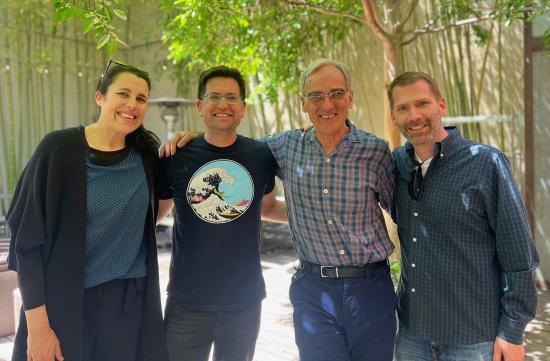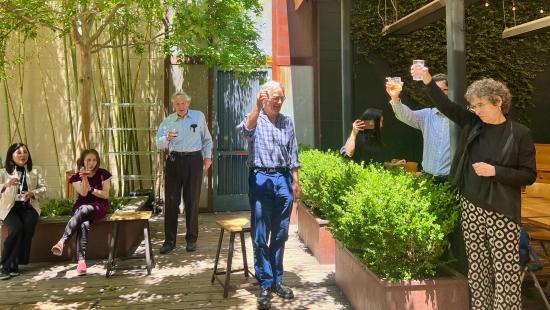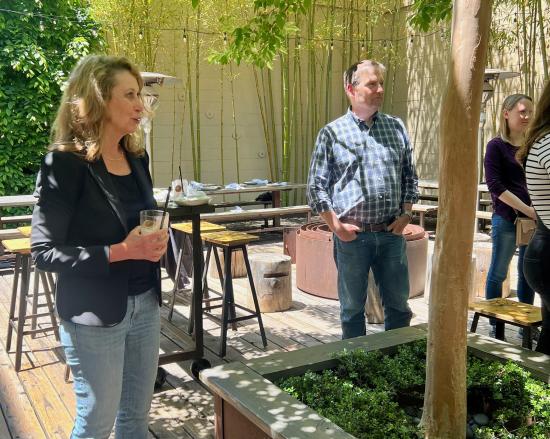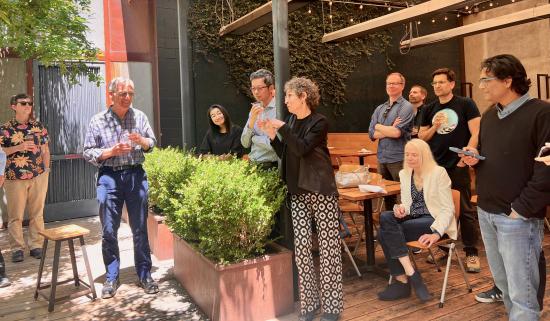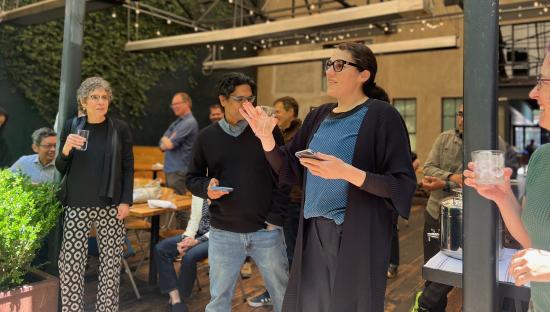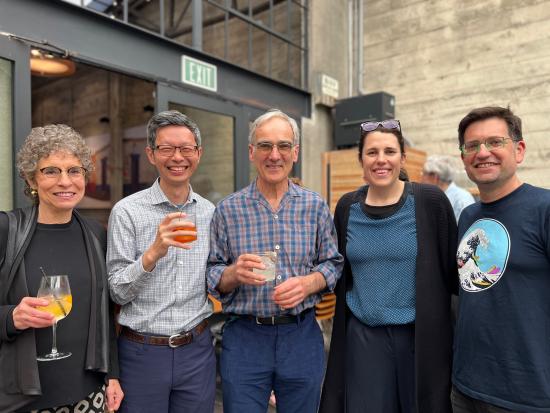After 18 years at the School of Information, Paul Duguid, adjunct full professor and well-known scholar of the history of information, will retire from UC Berkeley.
Duguid joined the I School as an adjunct full professor in 2005 and has been the long-time teacher of the undergraduate course History of Information and the graduate course Concepts of Information.
In 2000, Professor Duguid co-wrote (with John Seely Brown) The Social Life of Information, a seminal book in which the authors argue that the impact of information technology cannot be fully understood outside of the social context in which it is used. In 2021 he co-edited and contributed to Information: A Historical Companion, which considers how information became so central to our everyday lives, and how its processing and storage make our data-driven era possible.
A retirement celebration was held on May 17, 2023, bringing together faculty, staff, and former students of Professor Duguid.
At the event, Professor and Head of School Marti Hearst recalled meeting Duguid at the Xerox Palo Alto Research Center (PARC) prior to the I School and after reading his papers with John Seeley Brown, which she called “mind-blowing” in the way they brought together technology and society.
“He always keeps us centered on what is the role of society,” Hearst shared, “not letting technology just run amok, but what is that other side and how can we think about that rigorously?”
“He is an amazing teacher, amazing mentor, cherished and loved by his colleagues,” she concluded.
Former Dean Anno Saxenian recalled that when she hired Paul in 2005, he insisted on bringing along his colleague and collaborator the late Geoff Nunberg, who he went on to teach with until 2018. Like Hearst, Nunberg, who focused on the social and cultural implications of information technology, was yet another scholar who came to the I School from Xerox PARC.
Alumni Megan Finn and Rajesh Veeraraghavan spoke about Duguid and read humorous anecdotes and lessons learned from other former students who weren’t able to travel to Berkeley to attend the celebration.
Common themes in the speeches included jokes about Duguid’s discomfort with receiving praise, his kindness, humility, and mentorship, and how for many students his reputation as an author of books and reviews preceded him.
Christo Sims (MIMS ’07, Ph.D. ’12) shared: “More than anyone in academia, Paul opened my eyes and put me on my feet. No words…can do justice to the debts we owe Paul, to the contributions he made to us as scholars, as colleagues, as human beings.”
Elisa Oreglia (MIMS ’08, Ph.D. ’13) wrote about a lesson she learned from Duguid: “That disciplines have boundaries, and a multidisciplinary approach requires the extra work to know at least the lay of the land of the individual disciplines… But once the lay of the land is clear, it is equally important to build a wall around one’s argument, being explicit about what is inside and will therefore be dealt with, and what is out of scope.”
Janaki Srinivasan (Ph.D. ’11) shared: “In a complicated way, the fact that Paul was pushing you towards more complex ideas also gave you the faith that maybe you had it in you to grapple with that idea then. Years later, and as a teacher and mentor myself now, I am more convinced than ever before that there was magic involved in how Paul was able to return every draft on time, and carefully reviewed!”
Ashwin Jacob Mathew (MIMS ’09, Ph.D. ’14) recalled: “He put the words ‘social’ and ‘information’ together long before anyone thought this might be a good idea. Like many of us, I encountered The Social Life of Information before I encountered Paul. It’s one of those books that stands the test of time – which is to say that every time I think I’ve stumbled upon an original insight into the nature of information, I find. more often than not, that Paul was there first. Indeed, just about every ‘original’ insight that I have ever had can be traced directly back to conversations with Paul.”
He added, “Paul taught me what it meant to be part of a community, in practice, together. As I moved from being taught by Paul, to teaching with Paul, I learned what it meant to treat students as colleagues – and how much it could mean to me, the student, that my teacher might see me as a peer. Again, Paul was there first, showing me how relationships and a generosity of spirit are integral to teaching and learning, as much as any ‘information’ that we might teach or learn. Paul never told me – or any of us – that he was there first. He gently pushed and prodded, asking questions, and opening up trails which we would only later discover were first cleared through his work.”
And Rajesh Veeraraghavan (Ph.D. ’15) shared: “Paul’s influence during my tenure at Berkeley has been pivotal in my journey. His wisdom, humor, and insights have continuously shaped me as a scholar and an individual.”
The I School thanks Professor Duguid for his dedication and contributions to the study of information and wishes him all the best in this new chapter in his life and career.










